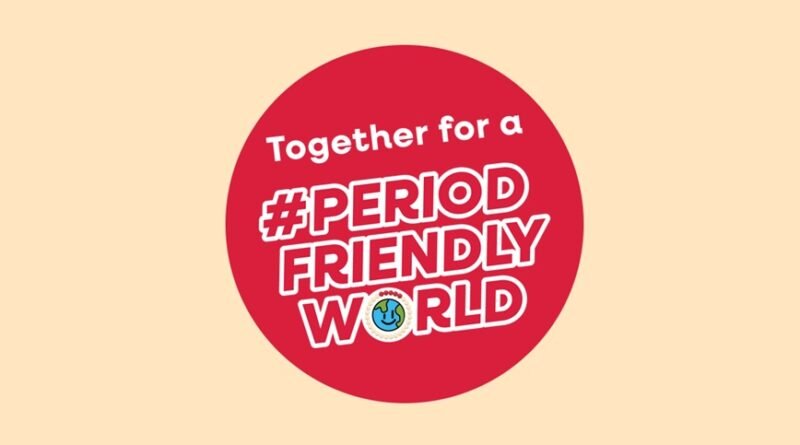Menstrual Hygiene Day 2025
Menstrual Hygiene Day 2025: Breaking the Silence on Menstruation
Menstrual Hygiene Day is observed globally every year on May 28 to raise awareness about the importance of good menstrual hygiene management (MHM). It brings together governments, non-profits, private sectors, and individuals to create a world where no one is held back because they menstruate.
In 2025, Menstrual Hygiene Day continues to be a crucial platform for addressing taboos, misinformation, and the lack of access to sanitary products and facilities. The day emphasizes dignity, equality, and health for menstruators around the world.
Theme of Menstrual Hygiene Day 2025
The official theme for Menstrual Hygiene Day 2025 is:
“Together for a #PeriodFriendlyWorld”
This theme underscores the importance of collaboration between governments, schools, communities, and individuals to ensure menstrual equity. It calls for inclusive policies, education, and infrastructure that support menstruators everywhere—regardless of gender identity, age, or location.
Why is Menstrual Hygiene Day Important?
Menstruation is a natural biological process, yet it is often shrouded in silence and stigma. Millions of girls and women worldwide still face:
- Lack of access to sanitary products
- Inadequate sanitation facilities
- Absence of menstrual health education
- Discrimination and social exclusion
Poor menstrual hygiene can lead to reproductive tract infections (RTIs), absenteeism in schools and workplaces, and psychological stress.
Menstrual Hygiene Day plays a critical role in:
- Normalizing conversations around menstruation
- Encouraging governments to improve WASH (Water, Sanitation, and Hygiene) infrastructure
- Promoting menstrual education in schools
- Supporting sustainable and eco-friendly menstrual products
History of Menstrual Hygiene Day
Menstrual Hygiene Day was initiated by the German-based NGO WASH United in 2014. The choice of May 28 is symbolic:
- May is the 5th month, representing the average 5 days of menstruation.
- 28 symbolizes the average length of a menstrual cycle.
Since its inception, the day has been supported by over 900 partner organizations across 140+ countries.
Global Efforts & Initiatives in 2025
1. UN and WHO Campaigns
UNICEF and WHO continue to support menstrual health initiatives through global policy advocacy, funding education programs, and guiding governments in low-income countries.
2. Menstrual Equity Bills
In 2025, countries like India, Kenya, and Scotland have made significant legislative progress to provide free sanitary products in schools and public facilities.
3. Corporate and NGO Partnerships
Several companies and NGOs are collaborating to distribute eco-friendly menstrual products and provide education in underserved regions.
4. Digital Education and Awareness Campaigns
Online platforms are playing a significant role in spreading accurate menstrual information via videos, articles, and webinars.
Menstrual Hygiene in India: Progress and Challenges
India has taken major steps forward with initiatives such as:
- Menstrual Hygiene Scheme (MHS) by the Ministry of Health
- Swachh Bharat Mission focusing on school toilets and WASH infrastructure
- ‘Suvidha’ initiative for affordable sanitary napkins
However, challenges remain:
- Persistent taboos, especially in rural areas
- Environmental concerns with non-biodegradable pads
- Need for gender-inclusive policies addressing menstruation for transgender men and non-binary individuals
How Schools and Communities Can Participate
🏫 Schools
- Conduct awareness drives and workshops
- Include menstrual health in curriculum
- Provide free sanitary products and disposal bins
🏘️ Communities
- Hold open dialogue sessions
- Train community health workers
- Promote reusable and biodegradable products
Eco-Friendly Menstrual Practices
With growing environmental concerns, there is increasing advocacy for sustainable menstrual products, such as:
- Menstrual cups
- Reusable cloth pads
- Organic cotton tampons
- Compostable sanitary pads
These not only reduce plastic waste but also provide cost-effective solutions over time.
How You Can Contribute on Menstrual Hygiene Day 2025
- Donate or Volunteer: Support NGOs working in menstrual health education.
- Talk About It: Break the silence by discussing menstruation in families and workplaces.
- Educate Yourself and Others: Use your platform to share facts and resources.
- Support Menstrual Equity Policies: Advocate for free access to menstrual hygiene products in public places.
Menstrual Hygiene Quotes & Messages for Awareness
“Menstruation is not a problem; poor menstrual hygiene is.” – WASH United
“It’s time we talk about periods openly, just like we talk about anything else.”
“A healthy period is a human right, not a luxury.”
Menstrual Hygiene Day 2025: Social Media Hashtags
- #MenstrualHygieneDay
- #MHDay2025
- #PeriodFriendlyWorld
- #MenstrualEquity
- #BreakTheStigma
Encourage your audience to use these hashtags to amplify awareness on social platforms like Twitter, Instagram, and LinkedIn.
Conclusion: Breaking Barriers with Education and Access
Menstrual Hygiene Day 2025 is more than a commemoration—it’s a call to action. By breaking taboos, educating communities, and ensuring equitable access to hygiene products, we can build a world where every menstruator lives with dignity and pride.
Let’s unite to normalize menstruation, dismantle misinformation, and create lasting change—for this generation and the next.
Explore International Days
featured image from https://www.menstrualhygieneday.org/

